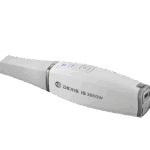According to an article from Medical News Today, Vivek Shetty, an oral and maxillofacial surgeon at the UCLA School of Dentistry who treats patients with facial trauma, has gotten funding from the National Institutes of Health (NIH) to study a better way to screen for and detect the psychological impact of injuries and thus unite the complementary skills of various health care providers to deliver comprehensive care to patients.
The UCLA School of Dentistry is among the first research institutions to receive a grant from the NIH’s new Genetics, Environment, and Health Initiative. The 4-year, $1,876,920 award to Shetty, the grant’s principal investigator, will culminate in the implementation of an innovative new tool that will provide rapid and reliable assessments of the stress response to trauma as evidenced in saliva.
Shetty’s previous studies have shown that traumatic facial injury provokes an immediate, intense psychological response from the victim, and a significant number of patients manifest post-traumatic stress disorder-like symptoms even 1 year after the injury. Unfortunately, a trauma center is a poor setting for administering the detailed questionnaires that help identify related mental health issues, whether they exist before or develop after injuries.
For these reasons, Shetty felt it important to develop an effective transdisciplinary approach that sets the stage for early integrated case management and interventions across a broad range of allied specialties. If surgeons, nurses, and social workers can easily identify at-risk patients who could benefit from psychological treatment and make the appropriate referrals for targeted interventions and follow-up care, they might be able to prevent further trips to the emergency department.
"A handheld salivary biosensor of stress could help health care providers treat not merely the physical injury but the whole person," Shetty said.
"Such a tool could have a profound impact on how we screen, triage, and treat injured patients," Shetty added. "Enabling surgeons to rapidly assess the risk for future psychological and substance-use problems will set the stage for expanded, high-quality post-trauma care that is specific to the needs of each patient and incorporates appropriate mental health interventions."
For the past decade, the UCLA School of Dentistry has been a leader in the burgeoning field of salivary diagnostics research. Currently, the school’s scientists are engaged in projects that use saliva to assess the risk of dental caries; create smart, targeted antibiotics that preserve beneficial flora; and diagnose various systemic illnesses, from oral and breast cancer to autoimmune diseases and diabetes.







